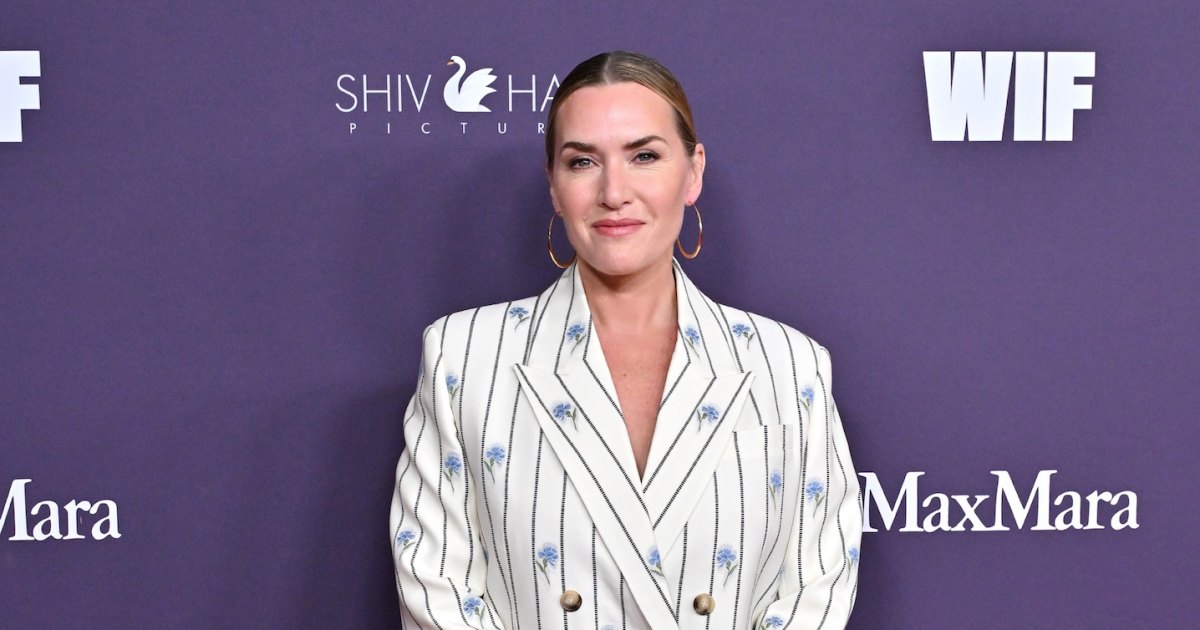Kate Winslet Confronts Her Deepest Fear: The Animal That Terrifies Her Most
In a recent interview, acclaimed actress Kate Winslet opened up about a surprising aspect of her personal life: her deep-seated fear of a particular animal. While many may associate her with elegance and poise, Winslet revealed that she harbors an unexpected terror of elephants, known for their massive size and stampeding behavior. This revelation not only sheds light on Winslet’s vulnerabilities but also invites a broader discussion about the relationship between humans and nature, as well as the psychology behind phobias.
The Unexpected Fear of Elephants
Kate Winslet has captivated audiences for decades with her powerful performances in films such as “Titanic,” “The Reader,” and “Little Children.” However, during a candid conversation about her experiences with wildlife, she disclosed her anxiety around elephants. This may strike many as unusual, given that elephants are often viewed as gentle giants. So, what is it about these majestic creatures that instills such fear in her?
Winslet explained that her fear stems from the sheer unpredictability of elephants, particularly in the wild. Despite their reputation for being intelligent and social animals, they can exhibit aggressive behavior when provoked or threatened. The possibility of encountering an elephant in a state of distress or agitation is enough to make anyone apprehensive. Winslet’s fear is not unfounded; there have been numerous incidents where elephants have charged at humans, especially in areas where their habitats are encroached upon.
Understanding the Psychology of Phobias
Phobias are often irrational fears that can be traced back to personal experiences or cultural influences. Winslet’s fear of elephants could be tied to a variety of factors:
- Childhood Experiences: Many phobias develop in childhood. A negative experience with an animal, even if it’s indirect, can instill a lasting fear.
- Media Influence: Movies and documentaries often dramatize animal encounters, which can skew perceptions and heighten fear.
- Innate Instincts: Humans have evolved to be wary of large predators or animals that can pose a threat. This instinct can manifest as a phobia.
Understanding the roots of these fears can be crucial in addressing them. Winslet’s openness about her feelings encourages others to confront their fears rather than hide them. It’s a reminder that even those in the public eye grapple with vulnerabilities.
The Impact of Phobias on Daily Life
Phobias can significantly affect one’s quality of life. For someone like Winslet, who travels frequently for work, the fear of elephants could pose challenges in certain regions. Here’s how such fears can influence daily activities:
- Travel Restrictions: Fear of elephants might deter her from visiting certain wildlife-rich destinations, limiting her experiences.
- Social Interactions: Discussing fears can create barriers in social situations, especially if friends or family don’t understand the intensity of the fear.
- Mental Health: Prolonged fears can lead to anxiety, impacting overall mental well-being.
However, acknowledging and discussing fears can be the first step toward overcoming them. Winslet’s candidness about her fear may inspire others to confront their own anxieties, fostering a sense of community and understanding.
Confronting Fears: Winslet’s Approach
Winslet’s journey to confront her phobia could serve as a valuable lesson for many. While the specifics of how she manages her fear of elephants are not widely documented, various strategies are commonly recommended for individuals facing similar challenges:
- Exposure Therapy: Gradually exposing oneself to the source of fear in a controlled environment can help desensitize individuals over time.
- Education: Learning more about elephants, their behavior, and their conservation may alleviate some fears. Understanding an animal can reduce anxiety associated with the unknown.
- Mindfulness and Relaxation Techniques: Practices such as meditation, breathing exercises, and yoga can help manage anxiety and promote calmness.
By applying such techniques, Winslet could potentially transform her fear into a deeper appreciation for elephants and wildlife as a whole. This shift in perspective is vital in understanding that fear, while natural, can also be an opportunity for growth.
The Broader Conversation on Wildlife and Conservation
Winslet’s revelation about her fear of elephants also opens up a broader conversation about wildlife conservation and human-animal interactions. Elephants, despite their size and strength, are endangered due to habitat loss and poaching. This raises important questions about how humans can coexist peacefully with these magnificent creatures.
As more people become aware of the plight of elephants, it is crucial to emphasize education and conservation efforts. Here are some ways individuals can contribute:
- Support Conservation Organizations: Many organizations work tirelessly to protect elephants and their habitats. Donations or volunteer work can make a significant difference.
- Promote Awareness: Sharing information about elephants and their conservation status can help raise awareness and inspire action among peers.
- Advocate for Ethical Tourism: Choosing eco-friendly travel options that prioritize wildlife protection ensures that tourism does not harm these animals.
By engaging in these practices, individuals can help mitigate the fear that often surrounds large wildlife. Instead of viewing them as threats, we can learn to see them as vital components of our ecosystem that deserve protection and respect.
Conclusion: Embracing Vulnerability
Kate Winslet’s candid admission of her fear of elephants serves as a powerful reminder that everyone has vulnerabilities, regardless of their public persona. It’s an invitation for us all to embrace our fears and seek understanding rather than avoidance. Through education, exposure, and advocacy, we can not only confront our personal anxieties but also contribute to the conservation of the creatures that inspire both awe and apprehension.
In a world where nature often feels distant amid urbanization and technological advancements, Winslet’s journey highlights the importance of reconnecting with the natural world. By addressing our fears and fostering a deeper understanding of wildlife, we can cultivate a more harmonious relationship with the earth and its inhabitants.
See more The Buzz Live

